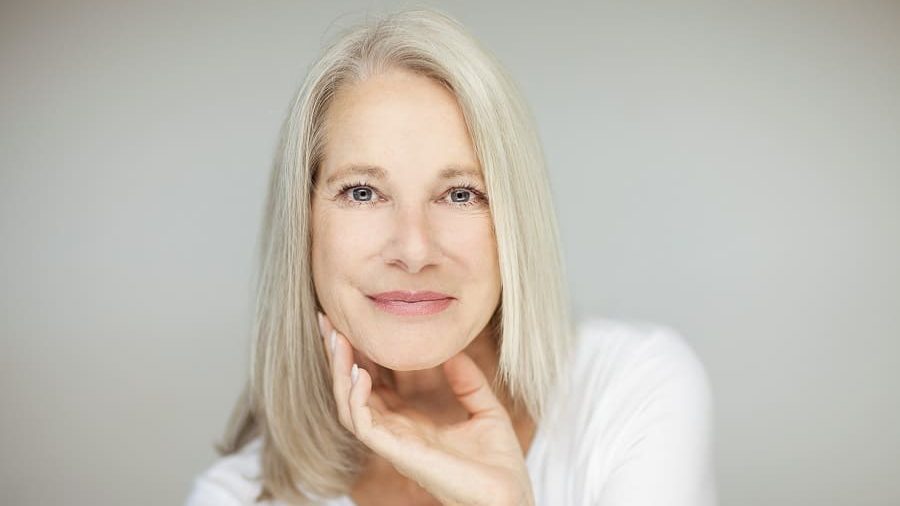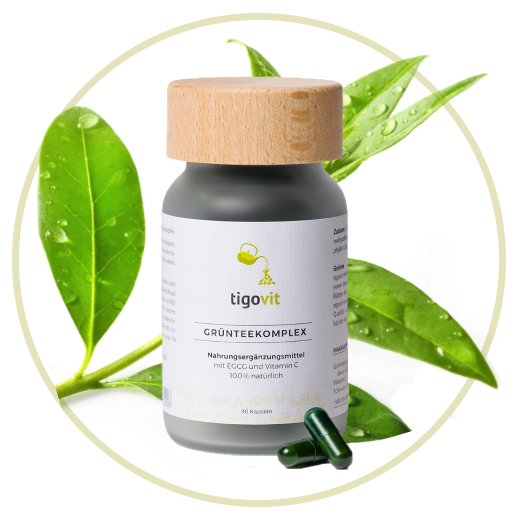
For many women the Menopause a spectre. But it doesn't have to be. With the right background knowledge and treatment tips on how the woman and also the man can get through the menopause well, you can sit back and relax. We have put together an overview of what you should know about the menopause and an absolute specialist, Dr Armando Farmini from Salzburg, was consulted with his experience. So: Get menopause out of the taboo corner!
When does the menopause usually start?
Menopause occurs when a woman has not menstruated for 12 consecutive months and can no longer conceive naturally. There are many factors that determine when the menopause begins, including genetics and the health of the Ovaries. The average age for the menopause is actually 51 years. The perimenopause (pre-menopause) is a time when your hormones start to change in preparation for the menopause. It can last from a few months to several years.
For many women, the perimenopause begins sometime after the mid-40s. Other women skip the perimenopause and enter the menopause all of a sudden. In about 1 per cent of women, menopause starts before the age of 40, which is called premature menopause or primary ovarian failure. About 5 percent of women reach menopause between the ages of 40 and 45. This is called early menopause.
Most women start experiencing the first symptoms of menopause about four years before their last period. Symptoms often last until about four years after a woman's last period. A small number of women experience menopause symptoms for up to 10 years before it actually occurs. And 1 in 10 women experience menopause symptoms for 12 years after their last period.
The 3 phases of the menopause
This new stage of life can be divided into three stages: During the Perimenopause your periods become irregular. The period may be delayed, the bleeding may become heavier or you may miss one or more periods altogether. The Menopause is defined as the absence of menstruation for a whole year. And the Postmenopause refers to the years after the menopause has occurred.
What is the difference between menopause and menopause?
A woman comes into the Menopausewhen their ovaries start to become less female reproductive hormones to produce. The so-called menopause, i.e. the transition from the fertile to the infertile phase of life, begins around the age of 45 to 55, earlier for some women, later for others.
Menopause, on the other hand, is a clearly defined point in time during of the menopause, namely, in medical terms, the last menstrual period followed by no further bleeding for a year.
Why does the menopause happen?
Menopause is a natural process in everyone's life. In women, it occurs when the ovaries produce less reproductive hormones. The body starts to change because it has to begin to cope with the decrease in various Hormones to cope. These declining hormones are:
- Oestrogen
- Progesterone
- Testosterone
- Follicle stimulating hormone (FSH)
- Luteinising hormone (LH)
There is also a loss of active ovarian follicles that produce eggs and allow menstruation and fertility. Most women first notice that their periods become more irregular. This usually occurs sometime in the mid to late 40s.
In some other cases, menopause is triggered by external factors or caused by injury or surgical removal of the ovaries and associated pelvic structures (even prematurely).
What are their symptoms?
For many women, medical treatment for menopause is not necessary. But menopause can also cause unpleasant symptoms. Factors that affect ovarian health, such as cancer, a hysterectomy or certain lifestyle habits can increase them. Read on to find out what you need to know about menopause symptoms.
An estimated 75 percent of women experience menopausal symptoms. The Most common symptoms of menopause can be:
- Hot flushes
- Insomnia
- Dry skin, mouth and eyes
- Vaginal dryness
- Weight gain & reduced muscle mass
- Depression & Anxiety
- Concentration difficulties & memory problems
- Decreased libido or sex drive
- Hair loss
- Increased hair growth on other parts of the body (face, neck, chest).
- Sensitive breasts
- Palpitations
- Painful or stiff joints
- Reduced bone mass
Complications that can occur more frequently during the menopause:
- Painful sexual intercourse
- Slowed metabolic function
- Osteoporosis or weaker bones
- Mood swings
- Periodontal disease
- Urinary incontinence
- Heart or blood vessel diseases
How is the menopause diagnosed?
"There are three types of diagnostics," explains Dr Armando Farmini, gynaecologist and specialist in bioidentical hormone therapy. "What does the patient tell me? What does the patient look like and what are the lab results? You can tell an incredible amount from a person's appearance. The connective tissue, the eyebrows or the skin show me a lot in advance about the condition of the person who comes to my practice." The lab results usually confirm what the body shows and what the patient says.
Tests can be helpful to indicate perimenopause, which can also have negative health effects. Your doctor may order a saliva or blood test that measures the level of certain hormones, usually FSH and a form of oestrogen called oestradiol. A consistently elevated FSH blood level of 30 mIU/ml or higher, combined with the absence of menstruation for a year in a row, is usually confirmation of menopause.
What are the treatment options for complaints?
Going into the menopause does not automatically mean that you have to see your doctor. Whether you need treatment depends on one crucial factor: Do you have symptoms or are you symptom-free?
Seek medical help if your symptoms are bothersome or affect your quality of life. Hormone therapy can be an effective treatment to reduce or manage various symptoms. These include hot flushes, vaginal atrophy or osteoporosis. Other medications may be used to treat more specific symptoms of menopause, such as hair loss or vaginal dryness.
The importance of progesterone
Progesterone is a very important hormone, but only one piece of the hormonal puzzle that the body needs. It keeps the balance with many other hormones like cortisol, adrenaline, insulin. Without the valuable progesterone, no balanced hormone therapy can take place. But why do progesterone preparations creams sometimes not work?
"It's the processing," Dr Farmini comments. "All hormones given transvermally must be highly micronised (reduced in size). An important point for hormone therapy to work well is the right amount of hormone. And here there is no set dosage." This has to be determined gradually by the doctor until the patient is symptom-free.
By the way, according to Dr. Farmini, the best way to take progesterone is as a cream. As capsules, the hormone passes through the gastrointestinal tract into the liver. This means that there is no optimal utilisation of the progesterone.
Natural remedies & tips to get through the menopause better
Basically, you can increase your well-being with a healthy lifestyle. But practical tips can also help to make everyday life as pleasant as possible. So here are a few ideas to help you get through the menopause more easily.
Stay "cool
Wear loose, layered clothing, especially at night and in warm or unsettled weather. This can help you manage hot flashes. Keep your bedroom cool and avoid heavy blankets at night to reduce the risk of night sweats.
Movement is "King
Exercise and reduce your daily calorie intake by 400 to 600 calories to control your weight. It is also important that you exercise for 20 to 30 minutes a day. You will get more energy, sleep better, your mood will rise and you will feel better overall in your skin.
Say it!
If mood swings and depressive moods are bothering you, don't take it on yourself. Get support by communicating your needs more. Talk to a therapist or psychologist about your feelings. You should also try to talk to your family and close people about how you are feeling.
Pay even more attention to your diet!
"Fast, quick and busy" used to be considered a sign that we were in demand and in the middle of life. That has changed. For some time now, mindfulness and awareness have been "the new sexy". Use this phase of your life to look even closer. How high quality is your diet? What eating habits are robbing you of energy? Pay attention and put quality on your plate.
Supplement your diet and take calcium supplements, Vitamin D- and magnesium supplements to reduce your risk of osteoporosis and improve your energy levels and sleep. Studies also recommend herbal remedies for menopausal symptoms caused by oestrogen deficiency. Nutrients that may help include flaxseed, melatonin, soy and isoflavones. Talk to your doctor about supplements to help with your individual health needs.
Give your skin the care it needs
Menopause is no reason to get worry or grief lines. On the contrary: as always, it's the inner attitude that counts and a confident and relaxed appearance makes you attractive, no matter what year of birth is on the certificate. Rather, now is the time to check your care routine with even more love for yourself.
Apply moisturisers daily to reduce dryness of the skin. You should also avoid excessive bathing or swimming as this can dry or irritate your skin.
Hands off nicotine and too much alcohol
Nicotine is not really good in any phase of life. But if you haven't quit smoking yet, you should consider quitting at the latest during the menopause. Cigarettes aggravate the symptoms during the menopause. This also applies to passive smoking. Heavy alcohol consumption can additionally increase the risk of health problems during the menopause.
Drink enough and the right stuff!
Especially during the menopause, you should make sure to drink enough. This means drinking two to three litres of fluid a day, such as mineral water or healthy, sugar-free and fresh juices. Drinking not only helps the general metabolism, but also counteracts dehydration of the skin.
A recent study also shows what women should drink before the onset of menopause: Tea! Previous research has indicated that tea consumption is associated with better bone density in post-menopausal women.
A new observational study published in the journal Nature Communications was published, shows that women Before menopause have to start drinking tea for significant differences to occur. It is interesting that no tea variety stood out in particular, but that the positive effect on the bones was observed independently of the tea.
Off into the spotlight of life!
Remember: Every person, every body is different and reacts individually to external influences. Therefore, let your doctor help you to get through the menopause more easily.
The symptoms of menopause are as varied as the people who experience them. And there are just as many ways and means with which you can face them in a relaxed way. Every body is different. Take advantage of this phase. If in the earlier stages of your life the focus was on other people, your job or the children, then perhaps now is a time to set off on the most exciting journey of discovery of your life: To yourself!
Sources:
https://www.nature.com/articles/s41430-021-00856-y
https://www.nutraceuticalsworld.com/contents/view_breaking-news/2021-03-09/temp-title-593183/?widget=listSection
https://www.womenshealth.gov/menopause
https://www.ncbi.nlm.nih.gov/pmc/articles/PMC2644382/
Images:
Pic by Kanea/shutterstock_1148614526
Photo by We-Vibe WOW Tech on Unsplash
Photo by Anne Nygård on Unsplash





